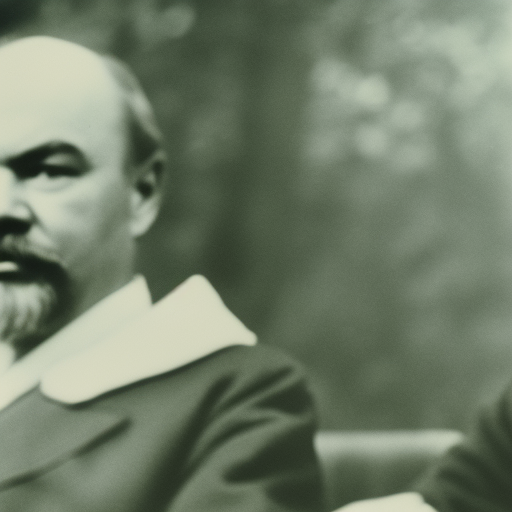Vladimir Lenin: A Revolutionary Leader
Vladimir Lenin was a prominent Russian revolutionary and political leader who played a crucial role in the establishment of the Soviet Union. Born on April 22, 1870, in Simbirsk, Russia, Lenin was deeply influenced by the ideas of Karl Marx and Friedrich Engels. He became a key figure in the Russian Social Democratic Labor Party (RSDLP) and later founded the Bolshevik Party, which would eventually lead the October Revolution of 1917.
Early Life and Political Activism
Lenin’s revolutionary journey began during his university years, where he became involved in Marxist circles and joined various revolutionary groups. He was arrested and exiled multiple times for his political activities, but this only fueled his determination to fight against the oppressive Tsarist regime. Lenin’s experiences in exile and his exposure to Marxist literature shaped his revolutionary ideology and strategies.
The Bolshevik Party and the October Revolution
In 1912, Lenin formed the Bolshevik Party, a faction within the RSDLP that advocated for a more radical approach to revolution. The Bolsheviks believed in the necessity of a vanguard party that would lead the working class to overthrow the bourgeoisie and establish a socialist state. Lenin’s leadership and organizational skills helped the Bolsheviks gain support among workers and soldiers, particularly during the tumultuous period of World War I.
The October Revolution of 1917 marked the culmination of Lenin’s revolutionary efforts. Taking advantage of the chaos caused by the war and the discontent among the Russian population, the Bolsheviks seized power from the Provisional Government. Lenin became the head of the new Soviet government, and the Bolsheviks began implementing their socialist agenda, including land redistribution and workers’ control of factories.
Consolidation of Power and Civil War
Lenin faced numerous challenges in consolidating Bolshevik power and establishing a socialist state. The Russian Civil War, which lasted from 1918 to 1922, pitted the Bolshevik Red Army against various anti-Bolshevik forces, including the White Army, foreign interventionists, and nationalist movements. Lenin’s leadership and determination were instrumental in the Red Army’s eventual victory, but the war took a heavy toll on the country, leading to widespread devastation and loss of life.
During this period, Lenin implemented several policies aimed at consolidating Bolshevik power. He introduced the New Economic Policy (NEP), which allowed for limited private enterprise and market mechanisms to revive the war-ravaged economy. Lenin also initiated the Red Terror, a period of intense repression against perceived enemies of the revolution.
Legacy and Death
Lenin’s leadership and revolutionary ideas had a profound impact on the course of history. He laid the foundation for the world’s first socialist state and inspired communist movements around the world. Lenin’s writings, particularly his work “Imperialism, the Highest Stage of Capitalism,” continue to be studied and debated by scholars and activists.
However, Lenin’s health began to deteriorate in the early 1920s. In 1922, he suffered a series of strokes that left him partially paralyzed. Lenin’s declining health and concerns about the future of the Soviet Union led to a power struggle within the Bolshevik Party. In 1924, Lenin passed away at the age of 53.
Conclusion
Vladimir Lenin was a revolutionary leader who played a pivotal role in the establishment of the Soviet Union. His leadership during the October Revolution and the subsequent Civil War shaped the course of Russian and world history. Lenin’s ideas and policies continue to be influential, and his legacy as a revolutionary thinker and political leader endures to this day.












